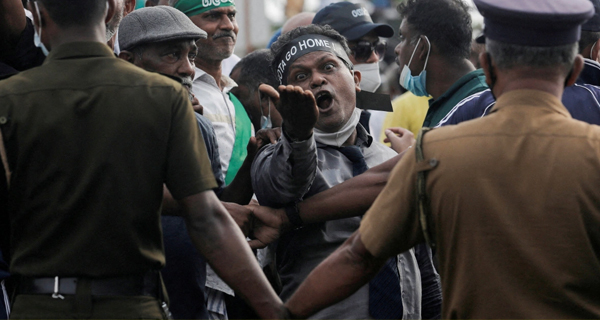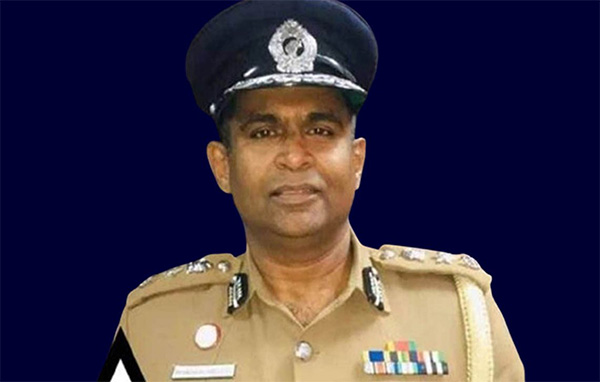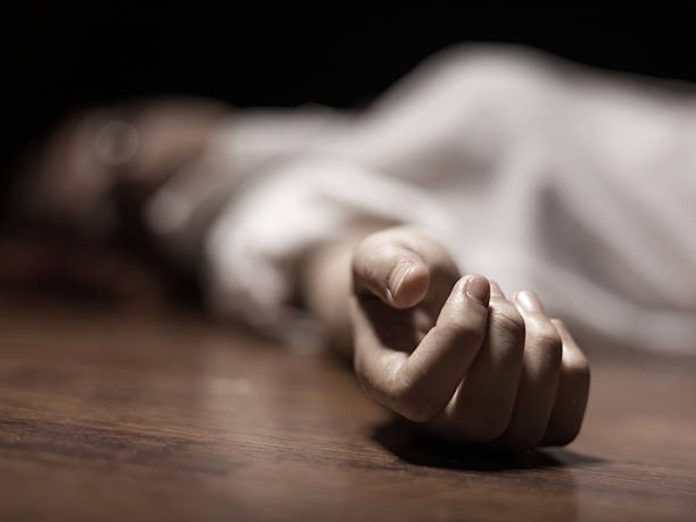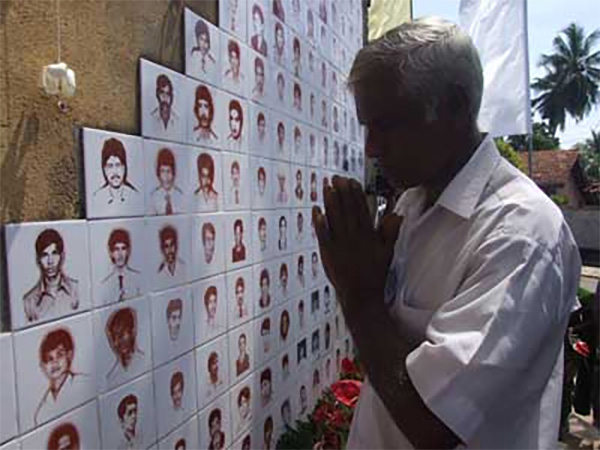STATEMENT ON ARRESTS, DETENTION AND TORTURE OF PERSONS AT THE MIRIHINA PUBLIC PROTEST ON 31st MARCH 2022
The Sri Lanka Collective Against Torture (SLCAT) condemns the arrests, detention and torture of protestors and by-standers at the public protest at Mirihana, Nugegoda on the night of 31st March 2022. These persons had gathered to exercise their basic civic right to highlight the devastating impact of the economic crisis which has led to island wide power outages and a fuel shortage which has impacted essential services and the supplies of food and medicines.During the last several weeks, at least three deaths of people who stood in line waiting for LP gas deliveries or fuel supplies were recorded, and scuffles broke out as people clamoured to access essential supplies.
Emerging video footage of the protest shows what appears to be excessive and unprovoked use of force by the police against peacefully protesting persons, bystanders and journalists. For instance, there is footage of police following/chasing persons, who appear to be residents of the area in which the protest was being held and beating them. It has been reported that the use of rubber bullets and tear gas has caused injuries and had an adverse health impact on protestors and bystanders, including children who accompanied their parents. The government justifies the use of force by pointing to the destruction of public property, but video footage indicates police disregarded acts of violence when they were taking place although they were present at the site, such as a bus being set on fire. This gives credence to allegations that persons who were not protestors infiltrated the protests and caused violence to which law enforcement turned a blind eye.
By the morning of 1st April 2022, several arrested persons alleged they were beaten in police custody due to which they had sustained injuries. Some detained persons were noted having visible fresh injuries including baton inflicted welts across their backs and experienced difficulty walking. Despite this, for more than 12 hours they were not provided medical care, which could constitute torture and appears to be part of the punishment inflicted on the protestors for participating in the protest. At the time of issuing this statement, close to half the number of persons arrested were hospitalized and could not be physically produced before court.
We reiterate that torture is forbidden under international human rights law as well as Sri Lankan law, including the Constitution. It is also the right of detained persons to have access to a lawyer, which is in part to protect them from torture or inhuman, degrading treatment or punishment while in custody. Despite this, detained persons were prevented from consulting with lawyers even nearly 24 hours after they were arrested, which violates their due process rights.
As part of its strategy to legitimize its crackdown on dissent, the government branded the protestors “extremists”, and thereafter a government minister referred to the protests as acts of terrorism, which illustrates a clear attempt to stifle people’s right to expression, peaceful assembly and association. These acts of the government have to be viewed in the context of the deterioration of the rule of law, which is exacerbated by the declaration of a state of emergency by the government on 1 April 2022, that provides wide powers to the executive to curtail rights. These developments raise grave concerns about the potential crackdown on freedom of expression and assembly and dissent, particularly in light of the history of the abuse of emergency powers by the executive in Sri Lanka. The denial by the police they arrested social activist Anuruddha Bandara on 1 April 2022, who was located hours later on 2 April 2022 by the Human Rights Commission at the very police station which denied he was arrested, is a case in point. The police have stated he has been arrested under Section 120 of the Penal Code, a vague and overbroad provision on ‘causing disaffection’ that has been used by successive governments to curtail freedom of expression and stifle dissent.
When officers of the state justify their actions on the basis of national security or protecting public order, they have the onus of proving the precise nature of the threat and security risk. The security and well-being of citizens, in particular their right to challenge their elected representatives and hold them accountable is part of ensuring the security of the country. When this right is threatened, it undermines social cohesion and harmony. We reiterate that the right to dissent and peacefully protest to hold the government accountable and demand their rights is the inherent right of every citizen. This right must be respected by the government.
The Sri Lanka Collective Against Torture calls for:
- Every allegation of torture should be investigated and those responsible held accountable. Affected persons should be provided services for recovery and compensation.
- Persons arrested and detained against whom there is no evidence of any involvement in unlawful activity should be discharged.
- The government to respect the right of citizens to engage in peaceful protest and the right of the media.
- The police to abide by legal standards governing the use of force, i.e. legality, necessity and proportionality.
- The Human Rights Commission of Sri Lanka to conduct investigations into allegations of torture and issue at least its initial findings in an expeditious manner.
- The government to publicly apologize for the treatment of protestors and by-standers at the incident of 31st March 2022 at Jubilee Post junction.
Read the full statement below




